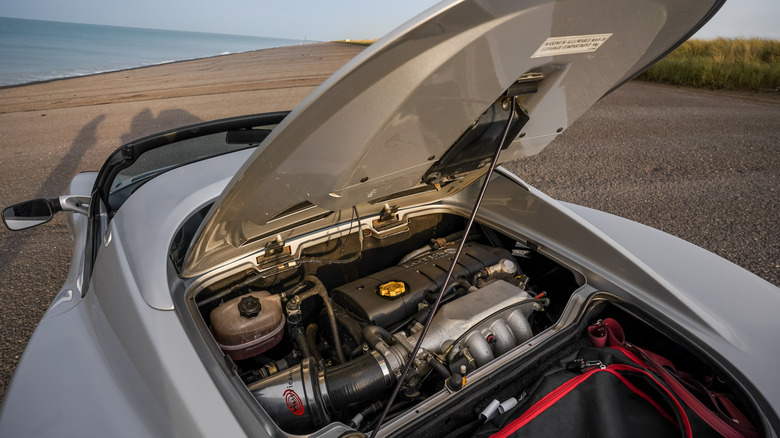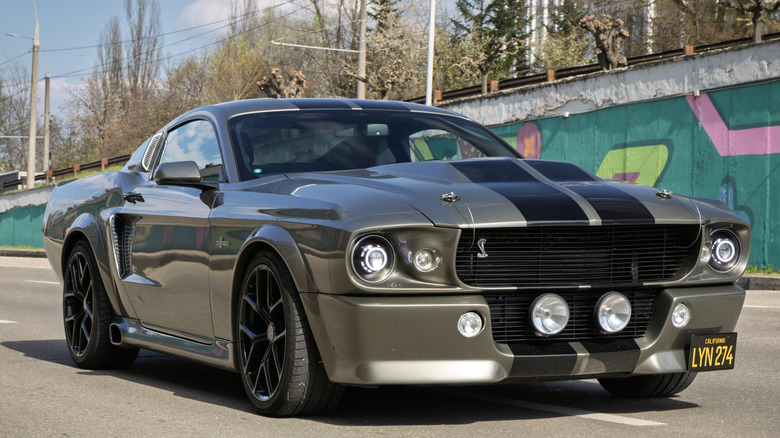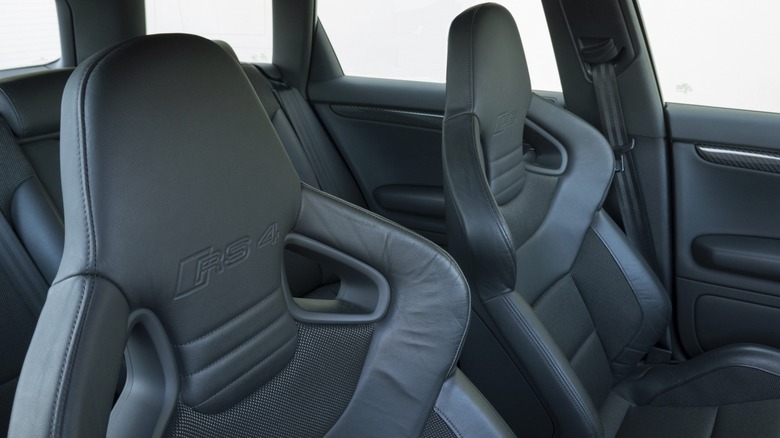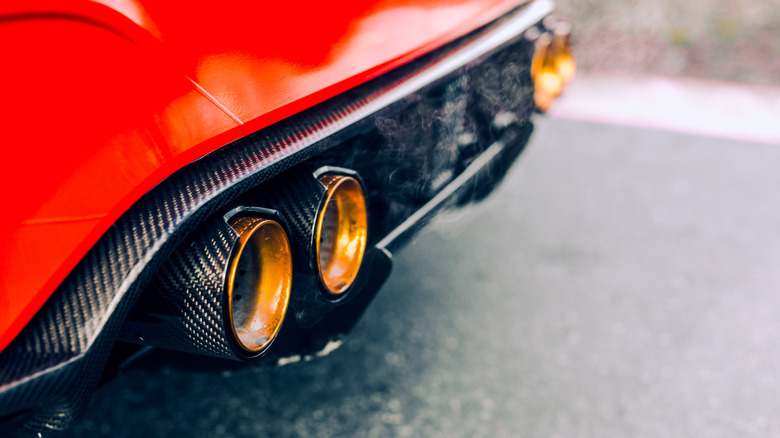4 Mods That Actually Improve Your Car's Resale Value
For many gearheads, keeping a standard car just isn't all that interesting. The process of modifying a car appeals for so many different reasons. You can make it faster with performance modifications such as aftermarket supermarket kits, freer-flowing exhaust systems, and cold-air intakes, or can pursue a cosmetic approach instead with wide body kits, or aftermarket lighting and alloy wheels. The world is your oyster, but the problem is, the more personal you make your oyster, the less likely it is to appeal to someone else.
The sad fact is that the thousands of dollars you pour into your car will more than often not translate through to a sale price that's thousands of dollars higher. Quite the opposite actually, with many modified cars actually selling for less than their standard counterparts.
However, this isn't always the case. Some modifications actually do result in a car gaining value, although this is the exception, rather than the rule. Think comfort-oriented mods, reliability upgrades, and modifications which the wider car community larger agree improve the car in one way or another.
Reliability upgrades
As cars age, common problems tend to pop up more. For example, common issues which plague the old Toyota 4Runner include various electrical gremlins, and frame rust, both of which can be costly to sort. For models produced in the 2010s, owners complain about glitchy infotainment systems, so it stands to reason that a reliable aftermarket upgrade would likely appeal to a potential buyer, thus lifting the car's value. This is a solid example of how addressing a car's weakness might improve the value, but it's not strictly reliability related.
Instead, examples such as installing PCV relocation kits to Audi's 3.0-liter supercharged V6 and fitting thicker, uprated head gaskets to Rover's K Series engine demonstrate the point much clearer. Both of these are known weak points of the engine's design, and by having these weak points addressed, the owners are building value into their cars.
Generally speaking, buyers do their research on what to look for, so to see that a previous owner has spent time and money tending to an inherent weakness of the model you're interested in should send nothing but green flags. The modification will not only give you peace of mind when it comes to future maintenance bills, but it also lets you know you're buying from an enthusiast, who has taken additional steps in caring for their car.
Building a replica of a race or film car
This isn't really a single modification, but rather a direction you can follow when modifying. When it comes to body kits, paint jobs or wraps, and custom interiors, you can either follow a vision developed within your own head, or use another car as the blueprint. Sometimes, car owners will use a famous film or race car as their inspiration, and set about building a faithful replica.
Think about the iconic Eleanor Mustang from "Gone In 60 Seconds." That car has been replicated a number of times, and it's not unusual to see examples selling for north of $100,000, or even in the region of $250,000 for really top quality examples. The actual film car was a '67 Mustang Fastback, customized by Chip Foose to look like a Shelby GT500. Hagerty suggests that good examples of these can be picked up from $30,500 onward, so it's pretty clear that building a faithful Eleanor replica out of one adds significant value to the car.
Other examples include replicating famous "Fast & Furious"film cars, which can command impressive premiums over the models upon which they are based when they do come up for sale. Likewise, building a faithful replica of an iconic race car, like a MK1 Mini Cooper S rally car, for example, can see the finished product being worth much more than the base car you started with. Obviously, the costs of creating these replicas can be quite significant, but we're not saying that modifying in this way is profitable, rather that it can increase the vehicle's value — there is a difference.
OEM upgrades
Buying a used car can sometimes lead to making compromises. It's not like buying a new model, where you can tick which color you'd like inside and out, upgrade the wheels, and swap out that ubiquitous piano black trim for something a little more characterful. Instead, you have to settle for what the previous owner wanted.
However, you can add the various upgrades you'd like retroactively. Take Audis, as an example. A lot of owners of performance Audis like the wingback Recaros, or Super Sports seats for later models. The same goes for those diamond-cut Rotor alloy wheels. These aren't shoddy aftermarket upgrades, the car community generally agrees that they are very desirable additions, and equipping them to a lesser-spec'd example can help boost its value.
Here's the thing, though. If whoever is buying your car doesn't agree that the car should be sold for a higher price just because you've splashed out on OEM upgrades, then no problem, simply fit the original equipment back again, if you had space to keep those parts around. You can then simply re-advertise the smart seats and alloy wheels, and possibly claw back what you spent on them in the first place, effectively resulting in free modifications — that's gearhead math for you.
Quality modifications on performance cars
Not every modification is created equally. Having your friend straight-pipe your M3 with the use of their uncle's welder and pipe-bender is no doubt going to send the value of your pride and joy sinking, but buyers will likely appreciate a stainless steel sports system from a reputable firm, such as Milltek or Eisenmann. These are proven modifications which come with a great finish, long warranty, and even small gains in performance. Cheaper items from the likes of eBay do not, and they also suggest the car has been owned and run on a budget, which is a red flag to many performance car buyers.
This doesn't just apply to exhausts either. Performance suspension upgrades, lightweight alloy wheels, cold air intakes — all of these are great examples of common modifications which performance buyers might like to do themselves. Seeing high-quality items already installed on a car for sale might make that example stand-out ahead of standard examples for sale, and therefore command a small premium. After all, spending an extra $1,000 or so on a car with them already installed will be cheaper than buying the modifications separately, and you miss out on the hassle of having them installed too.
It all comes down to taste. Some buyers will want to buy the car totally stock, whereas others will see pre-installed modifications as a positive. Opting for high-quality parts from reputable suppliers is the key here.




